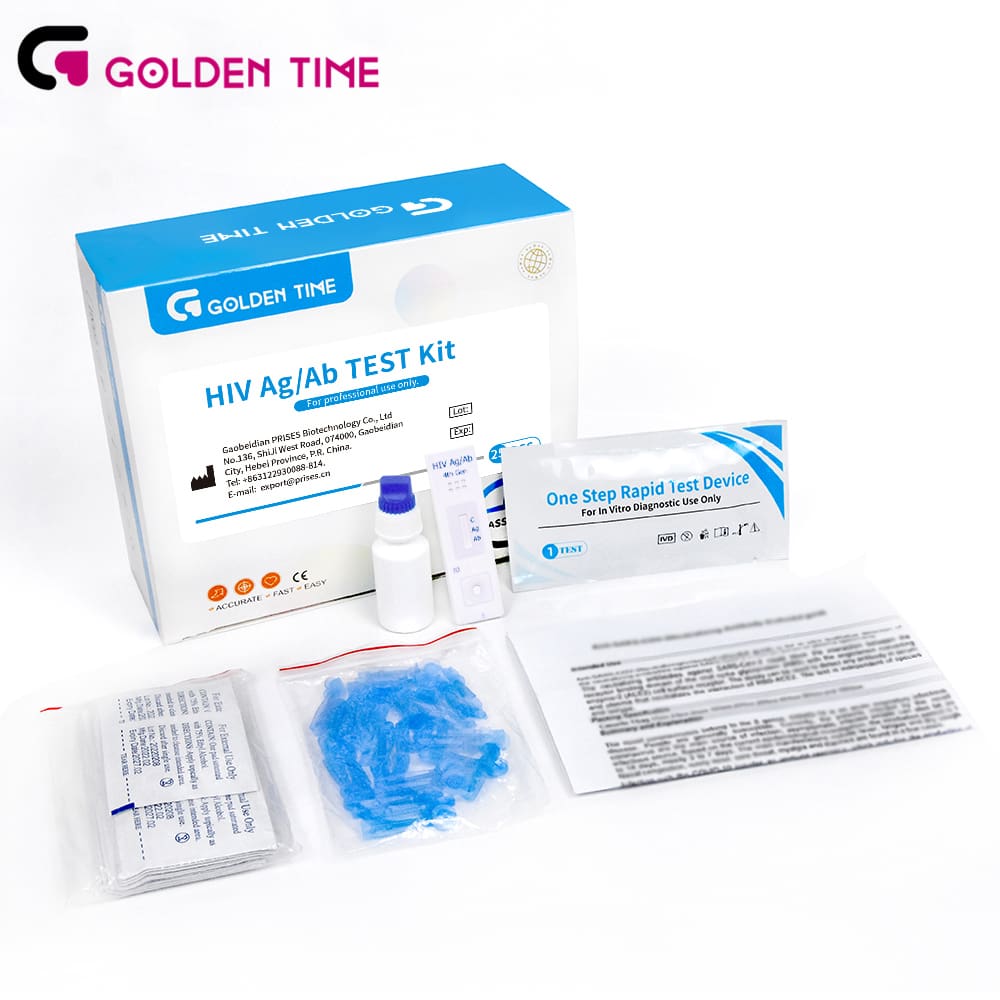Oct . 18, 2024 13:54 Back to list
Optimal Testing for HIV-1 and HIV-2 Antibodies for Accurate Diagnosis
Understanding HIV-1 and HIV-2 Antibody Tests A Comprehensive Guide
HIV, or Human Immunodeficiency Virus, remains a significant global health concern. With millions of people infected worldwide, early detection and diagnosis are crucial in managing the virus and ensuring the best possible outcomes for those affected. One of the most effective methods for diagnosing HIV is through antibody testing, which can detect the presence of antibodies to both HIV-1 and HIV-2. This article aims to provide a detailed overview of HIV antibody tests, their importance, and what individuals need to know about the testing process.
What Are HIV-1 and HIV-2?
HIV comes in two main strains HIV-1 and HIV-2. HIV-1 is the most common and widespread type, responsible for the majority of HIV infections globally. HIV-2 is less common and is primarily found in West Africa, although cases have been reported in other regions. Both types of HIV attack the immune system, specifically CD4 cells, and can lead to Acquired Immunodeficiency Syndrome (AIDS) if not treated effectively.
The Role of Antibodies in HIV Testing
When the body is exposed to HIV, it responds by producing antibodies—proteins that help fight off infections. Antibody tests are designed to detect these specific antibodies. Although it may take some time for antibodies to become detectable after infection, most people will develop antibodies within two to eight weeks. This is known as the window period. Consequently, understanding the window period is crucial for accurate diagnosis and timely treatment.
Types of HIV Antibody Tests
1. Enzyme Immunoassays (EIAs) This is a common laboratory test that screens for antibodies to both HIV-1 and HIV-2. EIAs are highly sensitive and can usually detect HIV infections within a few weeks after exposure. 2. Rapid Tests These tests provide quick results—often within 20 minutes. They can be done in various settings, including clinics, community centers, and even at home with a self-test kit. While convenient, it’s essential to follow up with a laboratory test if a rapid test yields a positive result.
3. Western Blot This is a confirmatory test performed when an initial EIA or rapid test is positive. It helps to confirm the presence of HIV antibodies and distinguishes between HIV-1 and HIV-2 infections.
4. Antigen/Antibody Tests These tests can detect both HIV antibodies and the HIV p24 antigen, a protein that appears earlier in the infection. Antigen tests can identify HIV infection sooner than antibody tests alone.
Importance of Testing
best hiv 1 hiv 2 antibodies test

Getting tested for HIV is critical for several reasons
- Early Detection Early diagnosis allows individuals to begin treatment sooner, which can significantly improve health outcomes and reduce the risk of transmitting the virus to others.
- Informed Decisions Knowing one’s HIV status empowers individuals to make informed choices about their health and relationships.
- Prevention Those who test positive can take measures to prevent transmitting the virus to partners, and those who test negative can take steps to remain HIV-free.
Preparing for the Test
Before undergoing an HIV test, individuals should consider the following
- Understand the Types of Tests Know the difference between the various testing options available and choose the one that best suits your needs.
- Consult a Healthcare Provider A healthcare provider can help individuals understand the testing process, what to expect, and how to interpret results.
- Confidentiality Most testing locations guarantee privacy and confidentiality, ensuring that individuals feel comfortable during the testing process.
Conclusion
HIV-1 and HIV-2 antibody tests are vital tools in the fight against HIV. By detecting the virus early, these tests play a crucial role in improving health outcomes and reducing transmission rates. Awareness and education surrounding HIV testing are essential, empowering individuals to take control of their sexual health and make informed decisions. If you suspect you may have been exposed to HIV or are at risk, don't hesitate to seek testing. Early detection is key to living a healthy, fulfilling life.
-
Dengue NS1 Rapid Diagnostic Test Kit
NewsMar.07,2025
-
Dengue NS1 Rapid Diagnostic Test Kit
NewsMar.07,2025
-
Dengue NS1 Rapid Diagnostic Test Kit
NewsMar.07,2025
-
Transferrin Rapid Test Cassette Tumor Marker TF Card
NewsMar.07,2025
-
Malaria Pf Pan Rapid Diagnostic Test Kit
NewsMar.07,2025
-
malaria pf / pan ag rapid test
NewsMar.07,2025

